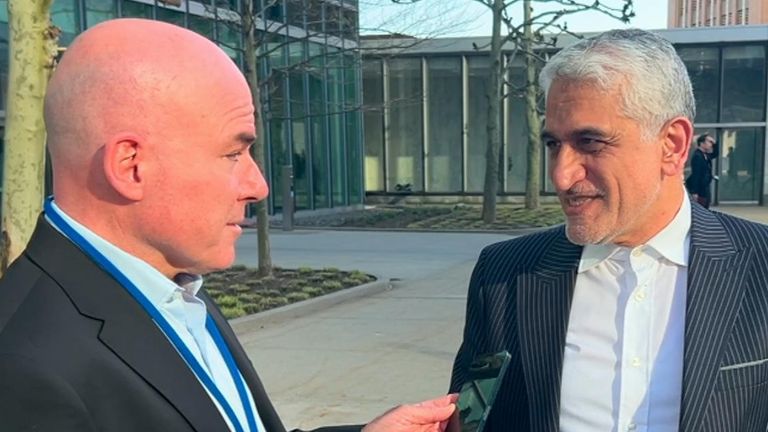Iran’s ambassador to the UN has told Israel “would know what our second retaliation would be… they understand the next one will be most decisive”.
Amir Saeid Iravani was speaking exclusively to James Matthews after an emergency meeting of the UN Security Council in New York on Sunday.
The day before, his country launched more than 300 drones and missiles into Israel in response to a strike on an Iranian consular building in Syria earlier this month which killed two Iranian generals. That strike has been widely blamed on Israel.
Israel’s war cabinet met on Sunday to discuss possible retaliation against Iran, with the country’s broadcaster Channel 12 quoting an unnamed official as vowing a “significant response”.
Mr Iravani described this promise as “a threat, not an action”.
But he said he believed a conclusion had been reached, adding: “I think there should be no military response from Israel.”
The weekend brought long-simmering tensions between the two countries to boiling point, sparking fears that the conflict could spread more widely across the Middle East region.
‘Our legitimate right to respond’
When asked if his country’s actions had risked escalation towards a wider war, Iranian ambassador Mr Iravani said: “It was our legitimate right to respond because they started aggression against our diplomatic premises.”
Israel managed to repel most of Iran’s weekend attack, with the help of its Iron Dome defense system and forces from the US, UK, Jordan and France.
Ahead of Israel’s war cabinet meeting, centrist minister and war cabinet member Benny Gantz said: “We will build a regional coalition and exact the price from Iran in the fashion and timing that is right for us.”
‘Iran threatening to mount nuclear explosives on these missiles’
Defense minister Yoav Gallant, who, like Mr Gantz, has decision-making powers in the war cabinet, also spoke of forming an alliance “against this grave threat by Iran, which is threatening to mount nuclear explosives on these missiles, which could be an extremely grave threat”.
Iran denies seeking nuclear weapons.





